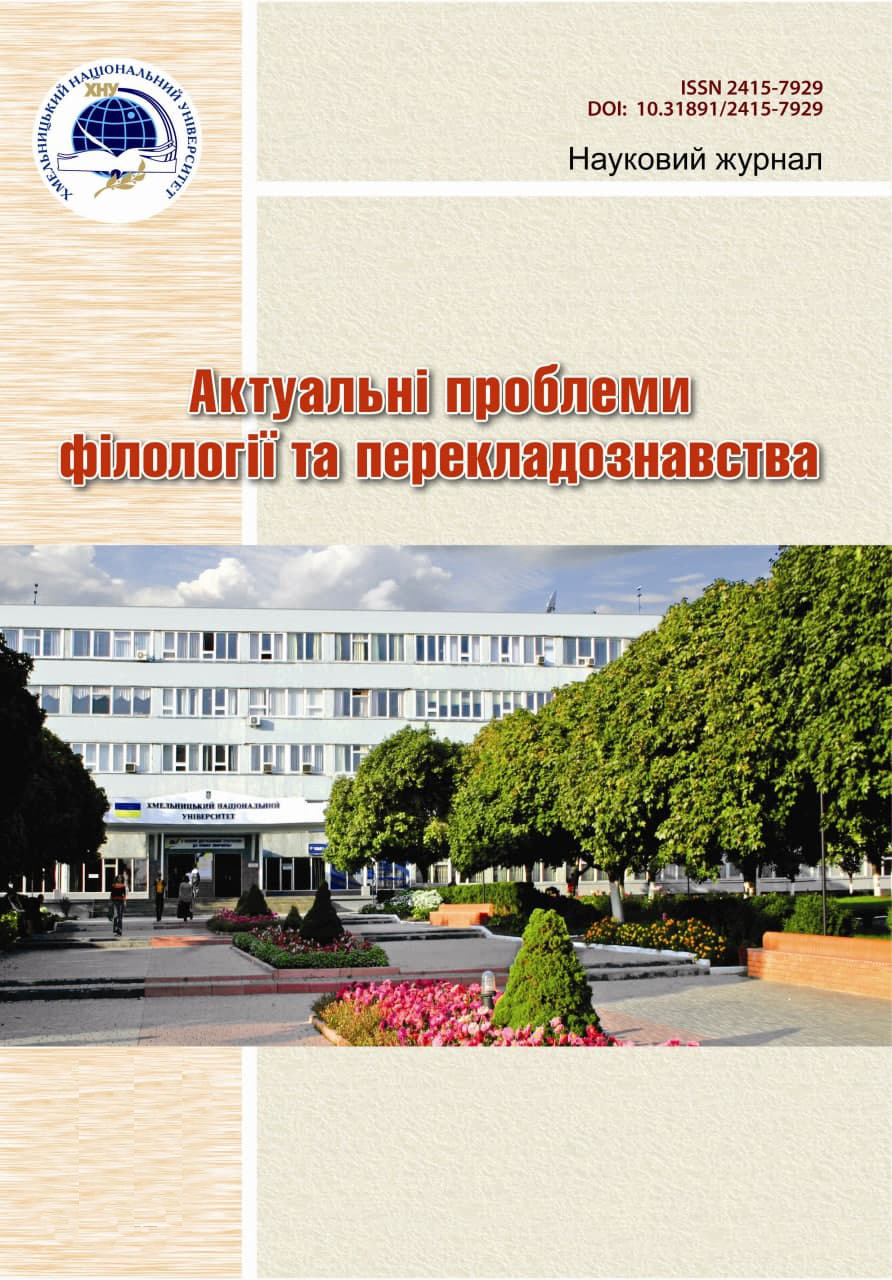DEVERBAL NOMINA LOCI OF THE OLD RUSSIAN LANGUAGE: COGNITIVE-ONOMASIOLOGICAL ASPECT
DOI:
https://doi.org/10.31891/Keywords:
motivation, predicate, locative, onomasiological structure, implication, mental-psychonetic complex, onomasiological-cognitive analysisAbstract
The article deals with one of the most pressing modern linguistics problems as the history of formation of deverbal substantive with locative meaning.
Deverbal nomina loci of the Old Russian language are formed as a result of predicate-argument motivation, which is based on the choice of the motivator from the area of true information about the denomination unit. Predicate-argument motivation is a variety of propositional-dictum motivation, which is metonymic by general mechanism.
During the derivatives formation with the meaning of a place, the connections between the predicate, the verb of a certain semantic class and the locative are highlighted. The most foreground are predicates denoting physical activity: labor, specific physical actions and processes, physiological actions and processes. In some cases, predicate signs are motivated by such situation arguments as temporative or patient. In the process of internal programming of the derivative onomasiological structure, the part of information is implicated. The patient is the most often implicated component of the motivational base.
The study of deverbal nomina loci of the Old Russian language was carried out in the cognitive-onomasiological aspect for the first time. The analysis of the factual material showed that the motivators of derivative names with locative meaning are chosen based only on the propositional-dictum part of the mental-psychonetic complex. This confirms the idea that the thinking of our ancestors was concrete and subject-sensitive.
Motivation research of other nominative and grammatical classes of words in the Old Russian language, as well as comparison of motivational features of verb nomina loci in the Old Russian and modern Ukrainian literary language seems to be perspective.
Downloads
Published
Issue
Section
License
Copyright (c) 2021 Г. ЯРМОЛЕНКО (Автор)

This work is licensed under a Creative Commons Attribution 4.0 International License.

